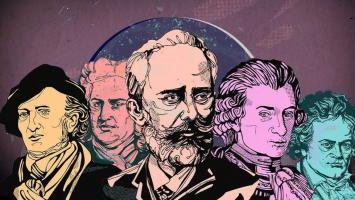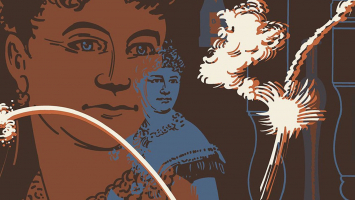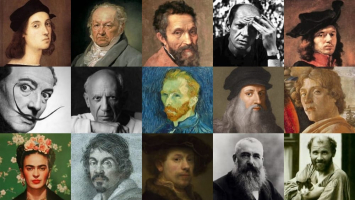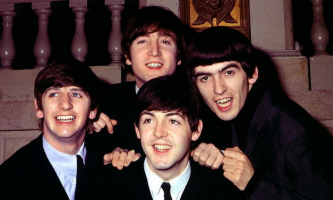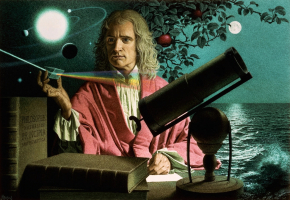Top 6 Greatest Vietnamese Writers of All Time
Vietnamese literature has a rich and vibrant history that spans centuries, encompassing a wide range of styles, themes, and genres. Let's explore some of the ... read more...greatest Vietnamese writers of all time with Toplist!
-
There's no Vietnamese person that hasn't heard of Nguyen Du, who is widely regarded as among the greatest Vietnamese writers of all time!
Born in 1766, Nguyen Du is best known for his epic poem, "The Tale of Kieu," (Truyện Kiều) - considered by millions of Vietnamese readers and even international critics as the pinnacle of Vietnamese literature.
"The Tale of Kieu" tells the story of a young woman named Kieu who faces numerous hardships in her life, including being sold into prostitution to save her family from financial ruin. The poem is a masterpiece of Vietnamese literary work, with its beautiful language, intricate plot, themes of love, sacrifice, and the search for spiritual enlightenment!
And the story doesn't end there; Nguyen Du's contribution to Vietnamese literature goes beyond just "The Tale of Kieu." He was also a prolific writer who produced many other works in other genres, such as essays and historical texts. His writing style was characterized by a combination of traditional Vietnamese literary techniques, combining folk poetry and legends and small degrees of Chinese literary influence to create a unique blend that is distinctly Vietnamese.
In addition to his literary achievements, Nguyen Du was also an important cultural figure, holding various government positions during his lifetime. His legacy continues to inspire generations of Vietnamese writers and intellectuals, and his work remains an important part of the country's literary and cultural heritage.
Age: 1766 - 1820
Most famous works: The Tale of Kieu (Truyện Kiều), Various Poems Made in the South (Bắc hành Tạp lục), Literature of the Ten Kinds of Beings (Văn tế Thập loại Chúng sinh)
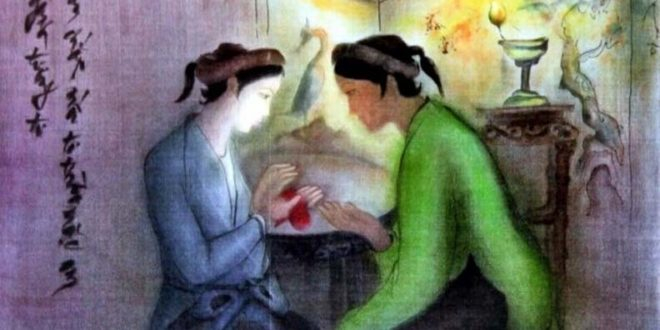
The Tale of Kieu; Photo on Wiki: https://tinyurl.com/4s66ctds 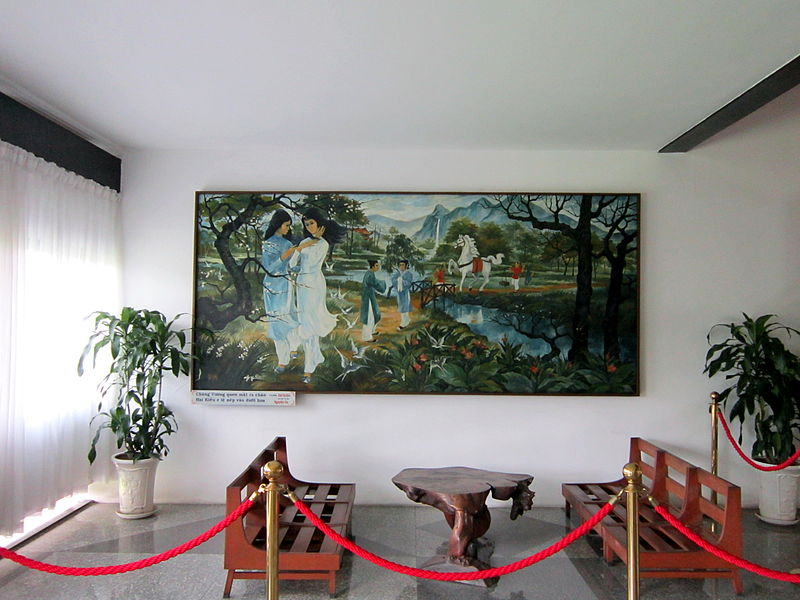
Thuy Kieu and Thuy Van; Photo on WIki: https://tinyurl.com/yhd35ya2 -
And how can we not talk about Bao Ninh, another well-loved author in Vietnam?
Born in 1952, Bao Ninh has a major influence on Vietnamese' literature with his most famous novel "The Sorrow of War" (Nỗi buồn Chiến tranh). This is considered the best masterpiece of contemporary Vietnamese literature, gaining international acclaim for its powerful and moving portrayal of the Vietnam War.
"The Sorrow of War" is a semi-autobiographical novel that tells the story of a young soldier named Kien who fights in the Vietnam War. The novel is unique in its depiction of the psychological and emotional toll of war, as Kien struggles to come to terms with the trauma and loss he experiences on the battlefield.
Bao Ninh's writing style is characterized by its raw honesty and emotional intensity, with a focus on the human experience of war rather than on the political or ideological dimensions of the conflict. It's not exaggerating to say that his work is a testament to the resilience of the human spirit in the face of unimaginable suffering, exerting a profound impact on readers both in Vietnam and around the world!
And aside from his undeniable literary achievements, Bao Ninh is also a veteran of the Vietnam War, having served as a soldier in the North Vietnamese Army. His experiences on the battlefield and his subsequent struggles with PTSD have informed much of his writing, giving it a depth and authenticity that is rare in contemporary literature.
For all these reasons, Vietnamese readers will forever hail Bao Ninh as one of the greatest Vietnamese writers of all time. Even after decades, "The Sorrow of War" will always be living proof of the power of literature and how it can record the rawest human experience of war.
Born: 1952
Most famous works: The Sorrow of War (Nỗi buồn Chiến tranh), Bao Ninh Short Stories (Bảo Ninh Những truyện ngắn), Hanoi At Midnight: Stories (Hà Nội Lúc Không giờ)
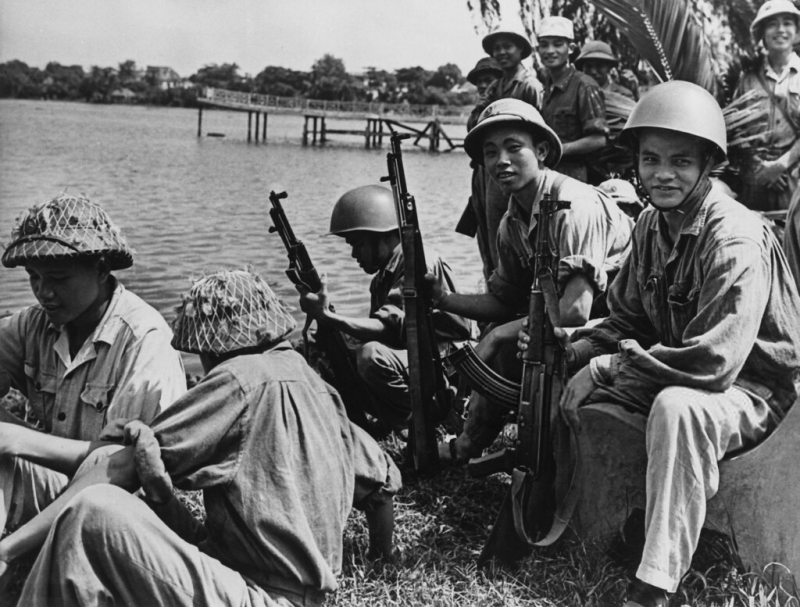
The war in Vietnam; Photo on Flickr: https://www.flickr.com/photos/13476480@N07/49905298103 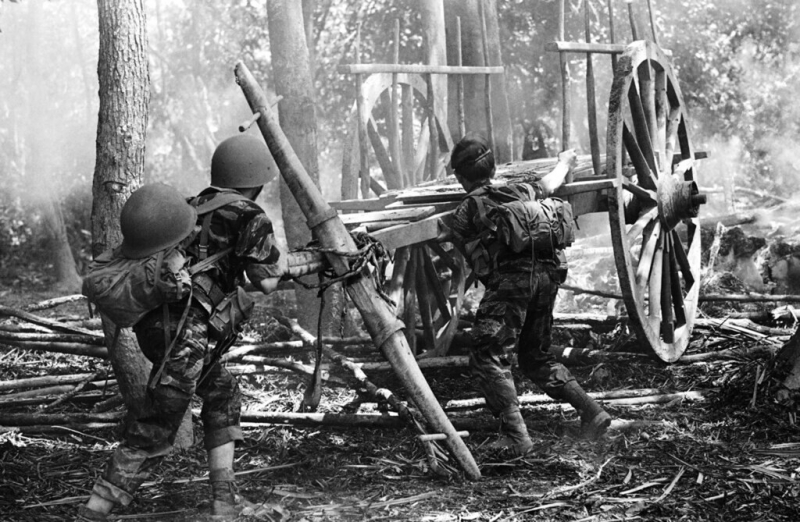
The war in Vietnam: Photo on Flickr :https://www.flickr.com/photos/13476480@N07/51296809609 -
Another memorable name in Vietnam's long literature history is Nguyen Huy Thiep, whose palpable impact on contemporary Vietnamese literature has been noted by both readers and critics.
Born in 1950, Huy Thiep began his writing career in the late 1970s - at a time when his country, Vietnam, was undergoing significant political and social changes. As a result, his writing is characterized by its unflinching portrayal of the human condition, with a focus on social issues and the struggles of ordinary people. Most of Thiep's stories often explore the darker aspects of human nature, such as greed, corruption, and violence; and all characters in these stories are complex and nuanced, reflecting the complexities of Vietnam's real-life situations at the time.
Regarding Nguyen Huy Thiep's most famous works, the obvious answer is his short story collection "The General Retires," (Tướng Về hưu), which won the prestigious Southeast Asian Writers Award in 1992. The collection is a searing critique of the corruption and moral decay that characterized Vietnam's post-war period, and its characters are drawn from all levels of society - from the poorest farmers to the highest-ranking government officials.
To this day, Nguyen Huy Thiep's impact can still be found even in modern literary writing. His work continues to inspire and challenge readers/writers both in Vietnam and around the world, a remarkable milestone that we should never (not that we can, though) let ourselves forget!
Age: 1950 - 2021
Most famous works: The General Retires and Other Stories (Tướng Về hưu), Crossing the River: Short Fiction (Sang sông: Tuyển Truyện ngắn)
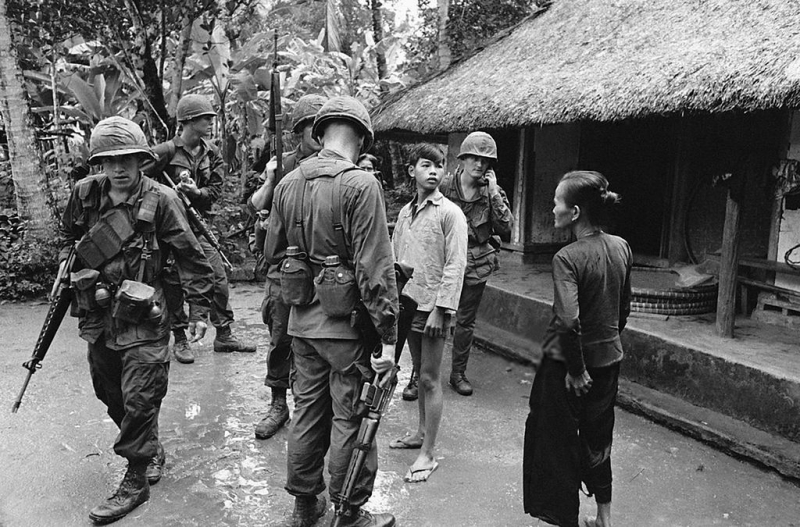
Vietnamese society; Photo on Flickr: https://www.flickr.com/photos/13476480@N07/36574620576 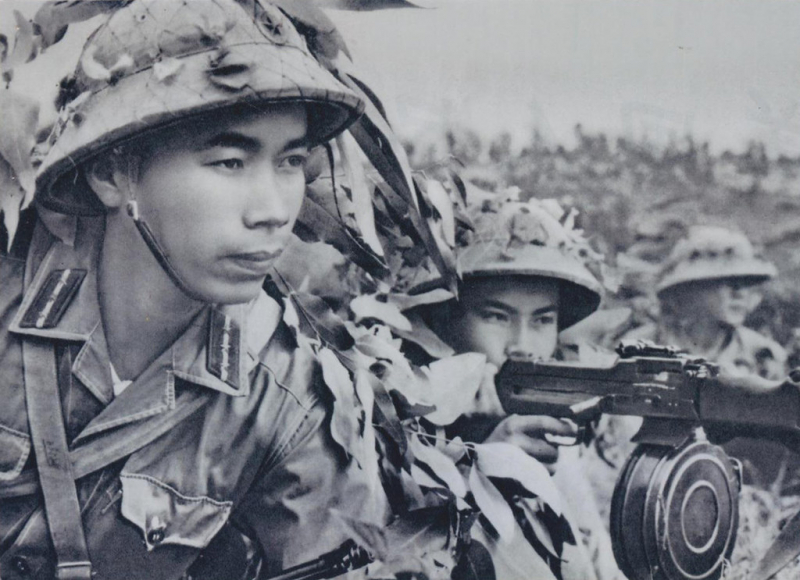
Vietnames society: Photo on Flickr: https://www.flickr.com/photos/13476480@N07/26396606586 -
Ngo Tat To (1894-1954) is such a household name that even younger readers have heard of his name. The man's work has undeniable influence in both Vietnamese literature and culture - and, at the time of war - served as a source of fighting strength for Vietnamese farmers and the lower class.
Ngo Tat To's literature and poetry are strongly characterized by his criticisms of the current society - and how it trapped people (especially young, poor women) in a hopeless, dark future filled to the brim with bad premises. His short novel, "When The Lights Out" (Tắt Đèn) is the peak of his writing career and the strongest reflection of his messages, resonating with female readers in particular and Vietnamese citizens in general even to this day.
Sadly, Ngo Tat To's final years of his life were just as stormy and tragic as the characters in his book; numerous rumors have revolved around his death, with many claiming that the man committed suicide at home.
Regardless of his passing away, his legacy as a writer and a revolutionary lives on, inspiring generations of Vietnamese writers and farmers to fight for justice and freedom. Millions of Vietnamese all concur that Ngo Tat To is indeed among the most legendary authors in history.
Age: 1894 - 1954
Most famous works: When The Lights Out (Tắt Đèn), Village (Việc làng)
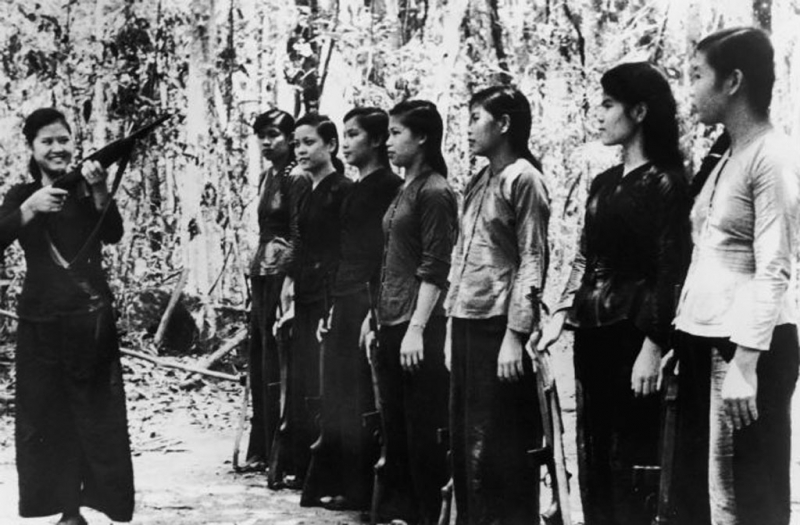
Women in the old society; Photo on Flickr: https://www.flickr.com/photos/13476480@N07/15747300698 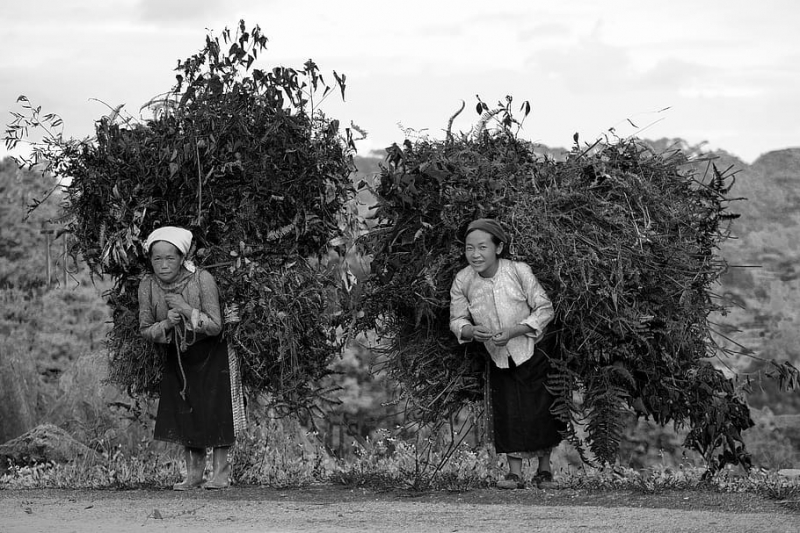
Vietnamese woman; Photo on Pxfuel: https://www.pxfuel.com/en/free-photo-xgbiu -
Of course, this list cannot be completed without Vu Trong Phung (1912-1939).
For decades, Vu Trong Phung is beloved by both Vietnamese international and local critics, thanks to his series of dedicated works that still have a lasting impact on Vietnamese literature and culture. He was a novelist, playwright, and essayist who is best known for his scathing critiques of Vietnamese society and politics during the colonial era.
There are no arguments regarding his most famous work: it's clearly the novel Dumb Luck (Số Đỏ) which tells the story of a young man, Red-haired Xuan, who is born into poverty and dreams of escaping his circumstances through luck and ambition. The novel is a searing critique of the corruption and social inequality that characterized colonial Vietnam, and its depiction of the struggles of ordinary people struck a chord with readers both in Vietnam and around the world.
Tragically, Vu Trong Phung's life was cut short when he died at the young age of 27. Regardless, what he had done for Vietnam and its literature continues to live on, remembered by millions of Vietnamese readers and inspiring intellectuals to engage more with the pressing social and political issues of their time.
Age: 1912-1939
Most famous works: Dumb Luck (Số Đỏ), The Industry of Marrying Europeans (Kỹ nghệ Lấy Tây), Lục Xì
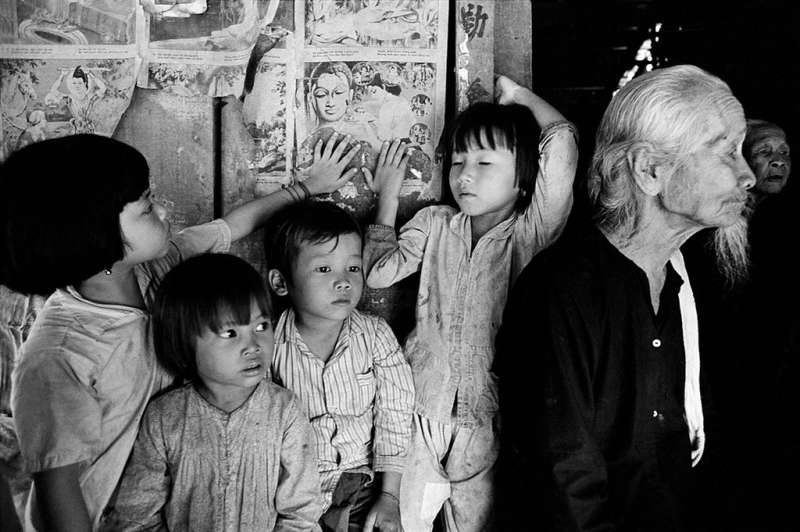
Vietnam's old society; Photo on Flickr: https://www.flickr.com/photos/13476480@N07/31570630303 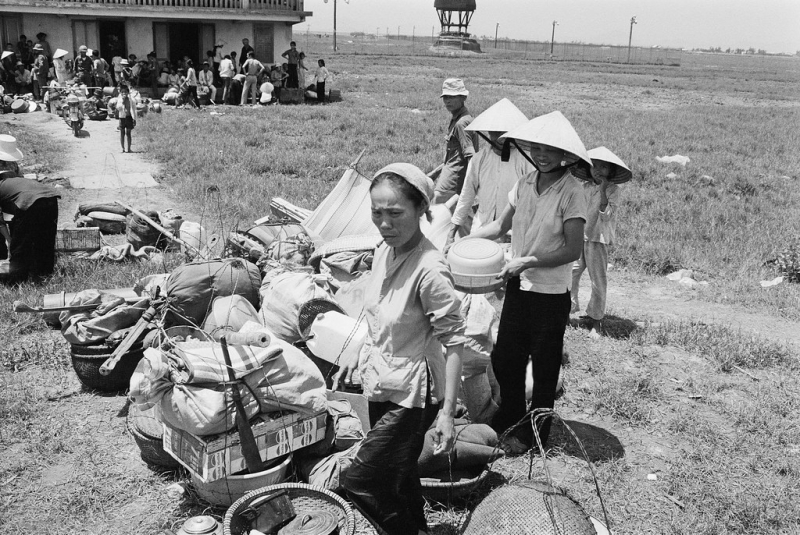
Vietnam's old society; Photo on Flickr: https://www.flickr.com/photos/13476480@N07/51162434190 -
Wrapping this inspiring list is Xuan Dieu (1916-1985), regarded as one of the greatest Vietnamese writers and poets. People remember and fall in love with his poetry thanks to their lyrical and evocative verses that explore deeply the themes of nature, love, and the human condition.
Its simplicity, elegance, and emotional depth are also quite unmatched, to the point that Xuan Dieu's work has even been compared to that of classical poets in other nearby countries (China, Japan, etc). His most famous poems, "Here comes Autumn," (Đây Mùa thu tới), "First Love," (Tình Thứ nhất), "Afternoon Love" (Tương tư chiều), and "Sea" (Biển), are meditations on the passage of time and the transience of human existence and emotion. These poems often reflect on the inevitability of change and the impermanence of all things, encouraging the reader to embrace the beauty of the present moment.
Xuan Dieu's poetry continues to be widely read and studied in Vietnam and around the world, and these works became so famous that they have been translated into numerous languages. It would be quite foolish to undermine his influence on Vietnamese literature and culture, which is why he remains one of the most beloved and revered figures in Vietnamese literary history.
Age: 1916-1985
Most famous works: Gold Pine Pollens (Phấn Thông vàng), Thơ thơ, Casting Fragrance to the Wind (Gửi Hương cho Gió)
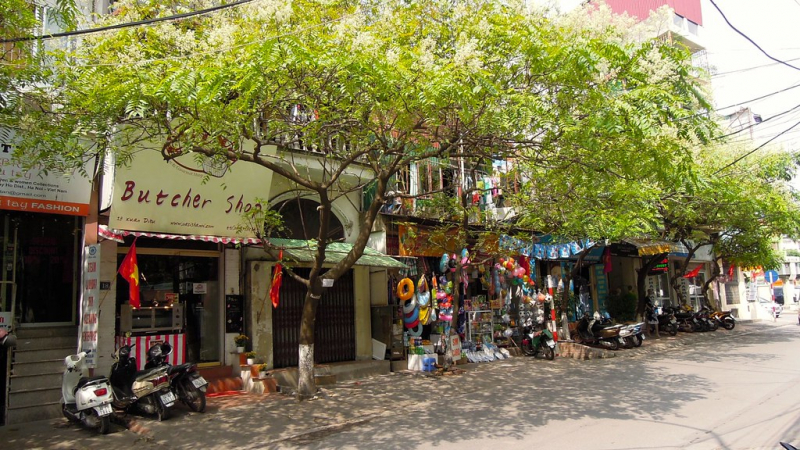
Xuan Dieu Street, Photo on Flickr: https://www.flickr.com/photos/dgmckelvey/9899098524 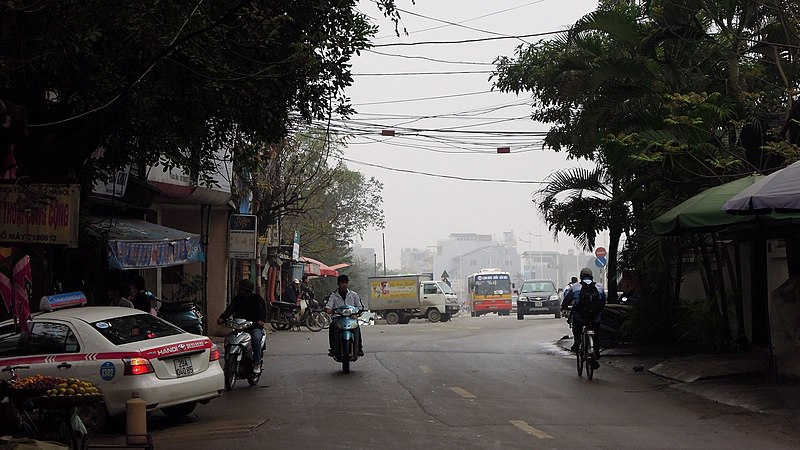
Xuan Dieu Street, Photo on Wiki: https://commons.wikimedia.org/wiki/File:Xuan_Dieu_Street,_Tay_Ho,_Hanoi,_March_2012.jpg










